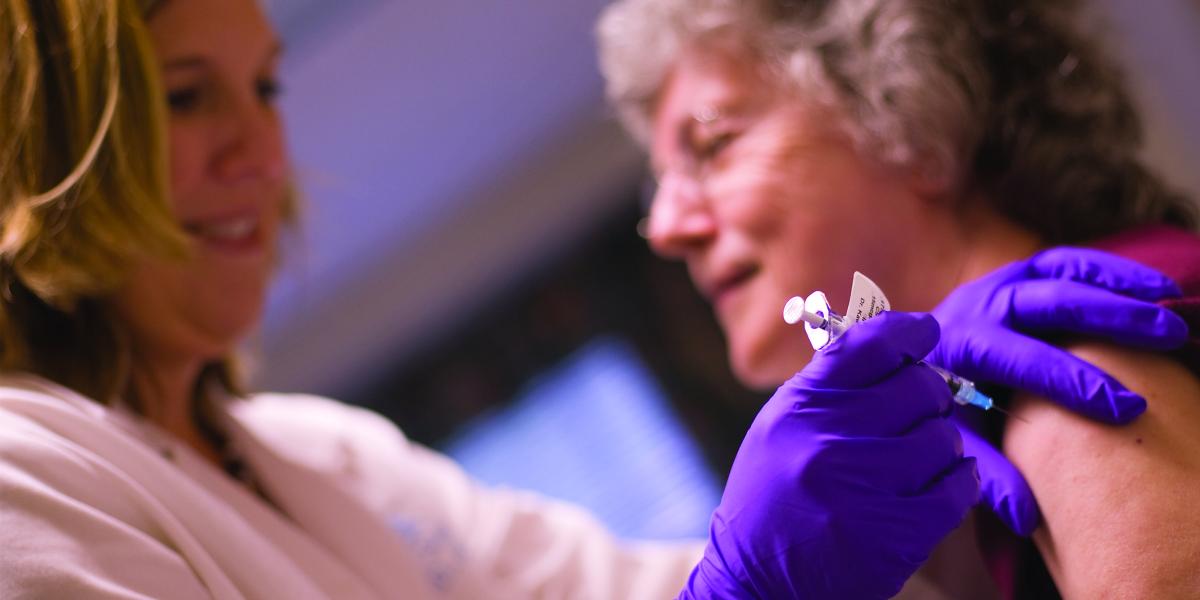Inside the H1N1 Vaccine Trial
Australian scientists made headlines in September when they reported that a single 15-microgram vaccine dose conferred protection against H1N1 influenza—a conclusion that surprised many in the public health community who had earlier predicted that two doses would be necessary.
The question of optimal dosage is among those being investigated by researchers at the Bloomberg School’s Center for Immunization Research (CIR), which is leading one of the largest clinical trials of H1N1 influenza vaccines in the U.S. Vaccine maker CSL Biotherapies of Australia selected the Bloomberg School as the lead site to test its new vaccine against H1N1 in a population of 1,300 across 11 testing sites in the U.S.
Given the preliminary data, the FDA licensed the vaccine on September 15. The CIR-led trial will provide additional information about the response to this vaccine in healthy young adults. It will also yield information about the response to varying doses of the vaccine in elderly adults over age 65, a group that was not included in the Australian study.
As the lead vaccine testing site, CIR investigators are collecting additional blood samples to conduct more in-depth research on the vaccine’s protective capabilities. Since the trial began on August 25, the study subjects—all between 18 and 84—have either received two injections of 7.5, 15 or 30 micrograms of the vaccine, or two injections of placebo, given three weeks apart.
“We are trying to understand the scope of the immune response to this vaccine,” says Kawsar Talaat, MD, the study’s principal investigator. CIR researchers are particularly interested in the phenomenon of memory immune response, especially in light of the 240-person Australian trial. “The fact that they had a good response after one dose leads us to believe there’s maybe some ‘memory’ in our immune system,” says Talaat, an assistant scientist in the Department of International Health. “It may explain why this is more of a mild pandemic.”
Although the Australian findings are promising, vaccine experts note that the much larger H1N1 vaccine trials in progress in the U.S.—including the CIR-led trial and NIH-sponsored studies—may provide more conclusive data on dosing, says CIR director Ruth Karron, MD, co-principal investigator of CIR’s vaccine study.
